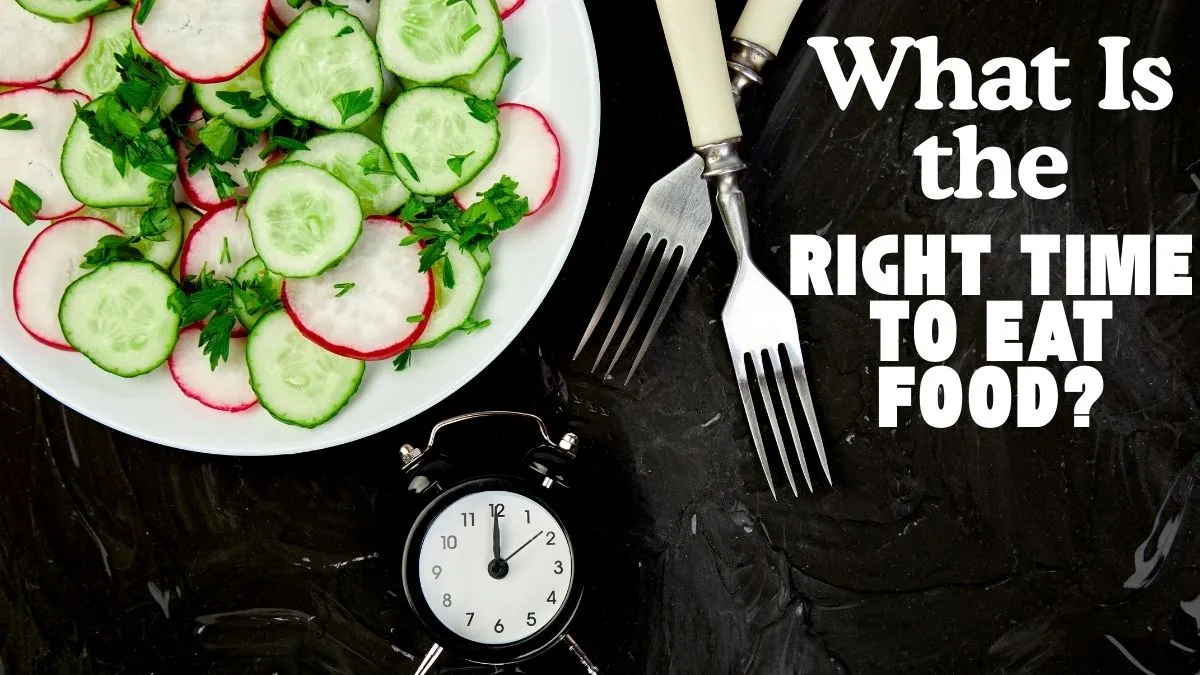- By Priyanka Munshi
- Tue, 07 Jan 2025 06:06 PM (IST)
- Source:JND
Your diet plays a crucial role in weight loss. If you are planning to start a weight loss journey but your eating schedule is disorganized, you are less likely to see any significant benefits. Properly timing your meals can support your weight loss goals by regulating metabolism and controlling hunger levels.Start your day with breakfast between 7:00 AM and 9:00 AM. Eating breakfast within an hour of waking up is beneficial as it jumpstarts your metabolism and provides the energy needed for the day. Ensure your breakfast is nutritious and healthy to keep you active and energetic throughout the day.
There should be a gap of at least 4 to 5 hours between breakfast and lunch. In a conversation with Jagran English, Dt. Priyanka Patil, a Dietitian and Nutritionist at AIMS Hospital at Dombivli in Mumbai, highlighted the importance of the right timing for meals, especially during a weight loss journey.
The Role Of Meal Timing In Effective Weight Loss
According to Dt. Priyanka Patil, lunch should typically be consumed between 12:00 PM and 2:00 PM. Eating lunch on time helps prevent energy crashes and curbs cravings. Make your lunch well-balanced, including proteins, whole grains, vegetables, fruits, and lentils.
Dinner should ideally be eaten 2 to 3 hours before bedtime, usually between 7:00 PM and 8:00 PM. Eating dinner too close to bedtime can slow down metabolism and interfere with digestion. “Keep your dinner light but packed with essential nutrients. Along with proper meal timing, it’s important to choose the right types of food to achieve maximum benefits,” says Dt. Patil.
She advises avoiding junk, processed, or packaged foods while aiming to lose weight. Consistency in meal timings and portion control helps boost metabolism and prevent overeating. Dt. Patil also emphasizes staying physically active, hydrated, and ensuring 7 to 8 hours of sleep daily for overall well-being.
Meal Timing Guide For Weight Loss
1. Breakfast: The Day’s Foundation
- Best Time: Within an hour of waking up, ideally between 7:00 AM and 9:00 AM.
- Why: Eating early activates your metabolism and prevents mid-morning hunger.
- What to Eat: Opt for high-protein and fiber-rich options like eggs with whole-grain toast, oats with fruits, or poha with vegetables.
2. Lunch: Midday Energy Boost
- Best Time: 12:00 PM - 2:00 PM, approximately 4-5 hours after breakfast.
- Why: Ensures sustained energy levels and prevents afternoon slumps.
- What to Eat: Include proteins (dal, chicken, paneer), complex carbs (brown rice, quinoa, roti), and vegetables.
3. Dinner: Early And Light
- Best Time: 6:30 PM - 8:30 PM, at least 2-3 hours before bedtime.
- Why: Eating early aids digestion and prevents fat storage during sleep.
- What to Eat: Keep dinner light with grilled vegetables, soups, or a protein salad. Avoid heavy carbs and fried foods.
Snacks To Keep You Going
- Mid-Morning (10:30 AM): A fruit or roasted nuts.
- Evening (4:00 PM): A handful of seeds, a boiled egg, or a protein smoothie.
Expert Tips For Better Weight Loss
- Hydration is Key: Drink plenty of water throughout the day.
- Avoid Late-Night Eating: Post-dinner, stick to herbal teas or warm milk if needed.
- Consistency Matters: Fixed meal timings regulate hunger hormones and improve digestion.
- Conclusion
As Dt. Priyanka Patil explains, meal timing is as crucial as the quality of food you eat, especially when trying to lose weight. Strategically planning your meals boosts metabolism, stabilizes blood sugar levels, and curbs overeating. By adopting these meal-timing strategies, you can effectively manage your weight while maintaining optimal energy levels throughout the day.
